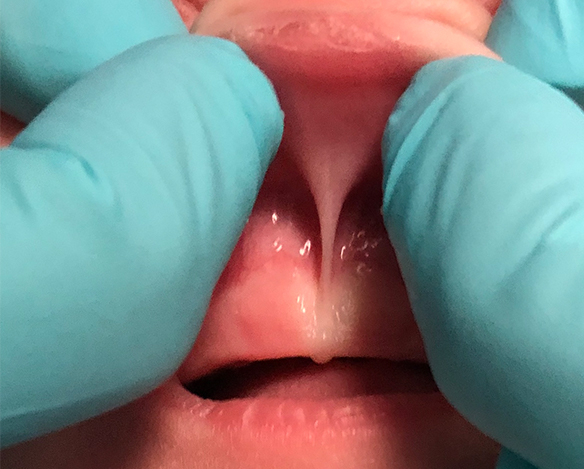Airway & Growth Development – COPPELL, TX
Airway & Growth Development
Dr. Melissa Rozas has over 25 years’ experience treating infants, children, and teens. She is board certified by the American Board of Pediatric Dentistry and is a Fellow in the American Academy of Pediatric Dentistry. Dr. Rozas most recently became an ambassador for The Breathe Institute. She and her staff have been treating children of all ages, including those with special needs and complex medical conditions. Dr. Rozas is also experienced and trained to evaluate children’s growth and development, screen patients for sleep related disorders and help identify oral dysfunctions that may affect sleep, speech, eating and overall health
Our goal is to help your child as they grow from newborns to children to teens and on to adults. The oral cavity and its supporting structures change dramatically both in form and in function. We strive to give parents the best recommendations to prevent and treat any oral issues that may develop during this time. This would include evaluation and treatment of teeth, malocclusions, airway issues, speech and tongue restrictions and pathology of oral structures. Wellness and prevention are at the forefront of our pediatric dental services in areas that include Coppell, Irving, Flower Mound, and more, working with parents to ensure their child has a healthy and happy smile!


Why Choose Melissa Rozas, DDS & Associates for Lip & Tongue-Ties (Frenectomies)?
- Light Scalpel C02 Laser for Frenectomies
- Infants, Children, and Teens Welcome
- Laser-Certified/Board-Certified Pediatric Dentists
Lip & Tongue-Ties Explained

Have you ever noticed the small bit of tissue that attaches the upper or lower lips to the gums or the tongue to the floor of the mouth? This thin portion of tissue is known as the frenum. Technically, these thin tissues exist in many areas of the body and in the case of the mouth, are designed to support the lips and tongue as well as aid in limiting movement of these oral structures. Nursing babies with tongue or lip ties can be difficult or impossible. We want you and your baby to have success when it comes to feedings and we want your baby to thrive. Do you have questions or concerns? If so, please call us for an appointment!
How Does the Procedure Work?

When the lingual frenum or the frenum that connects the upper lip to the jaw is too restrictive or too large, we perform a frenectomy. We can assess your child’s need for a frenectomy and review the procedure with you. In babies, this may be performed the same day. In older children or teens, we may need to work with your child in stretching and strengthening the supporting muscles prior to the procedure.
In our dental office, we use a CO2 laser called the Light Scalpel, which is a state of the art laser. Some benefits of the Light Scalpel include:
- Little to no bleeding
- No downtime
- Easier latching and breastfeeding
- Less sensitive gag reflex
Sleep-Related Breathing Disorders

The American Dental Association and the American Academy of Pediatric Dentistry recognizes that pediatric dentists are in a unique position to identify those children at greatest risks for Sleep-Related Breathing Disorders (SRBD) and Obstructive Sleep Apnea (OSA). For instance, does your child seem well-rested? Do they snore daily? Are they exhibiting problems at school? Is bedwetting still an issue? If your child experiences any of these symptoms, we encourage you to click on the link below to take the Pediatric Sleep Questionnaire (PSQ). You can print and fill this out and bring it with you to your child’s examination appointment. Based on your child’s clinical findings and their PSQ score, Dr. Rozas and her associates will give you more information regarding your child’s risk for SRBD and OSA.
Fill Out Our Patient Sleep Questionnaire
Take Our Tongue-Tie Quiz
Not sure if your child needs to have a tongue-tie or lip-tie in the near future? Take the quiz below. If you answer yes to one or more of these questions, Give us a call to help your child get the care that they need!
Lip and Tongue Tie FAQs

It is understandable if you are a little nervous about your child undergoing any sort of surgery, even one as minor as a frenectomy. Being well-informed about the procedure can help to put your mind at ease. To help you gather information about frenectomies, we have put together the following list of lip and tongue tie FAQs. If your specific questions are not touched on here, reach out to us directly. We will be happy to speak with you!
How Should I Prepare My Baby for a Frenectomy?
Preparing an infant for a frenectomy does not require much effort. It would be good to help your baby stay calm; lots of cuddles and reassurance can be helpful. Try to feed them 60 – 90 minutes prior to the procedure so they will be a bit hungry after their frenectomy; they will be encouraged to eat right after their procedure.
We might also recommend that you do some exercises with your baby in the day or two leading up to their appointment. For example, it may be good to have them suck on your clean finger. Gently pulling on your finger can help them to build strength in their oral muscles. It could also be helpful to run a finger along their gums to help them prepare to learn lateral function.
Does a Frenectomy Hurt?
Our practice uses advanced laser technology to perform frenectomies, which makes the procedure so comfortable that we do not even need to use local anesthesia in most cases. There is also minimal bleeding due to the laser’s cauterizing capabilities. Your infant may be sore for a few days after their appointment, but they should not experience any extreme pain.
Is My Child Old Enough to Get Lip or Tongue Tie Treatment?
There is no minimum age requirement for a frenectomy. In fact, the procedure can be performed as early as a few days after birth. We always recommend treatment at the earliest opportunity because if a lip or tongue tie remains untreated for too long, it can lead to numerous complications. For example, your child may find it difficult to latch during breastfeeding, which can cause slow weight gain. It could also cause pain and discomfort for the baby’s mother.
How Long Does a Frenectomy Take?
Usually, a frenectomy takes just a few minutes. Of course, there are some factors that could lengthen the appointment, such as if your child’s frenulum is unusually thick, or if they need treatment for both lip and tongue tie, rather than just one or the other. During your consultation, we can give you more details about what to expect during the procedure.












